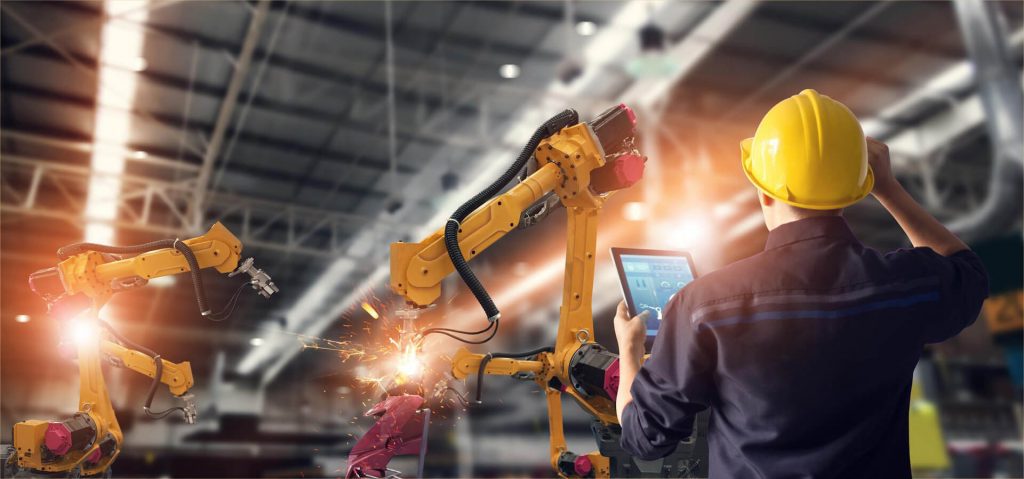Let’s first understand what skilled trades and artificial intelligence mean.
A skilled trade, or a vocational trade, requires a specified set of skills and knowledge. For example, welding, central sterile processing, manufacturing and automation, auto repairing, and plumbing are skilled trades. However, they require a specific set of skills to perform them correctly.
Artificial intelligence is defined as intelligence demonstrated by machines. It differs from the natural intelligence of humans and animals, which, basically and importantly, involves consciousness and emotionality.
Artificial intelligence was made into an academic discipline in 1955 and has experienced several waves since then. The first is optimism, followed by losing funding, new approaches, success, and renewed funding.
The main fear in the minds with the introduction of artificial intelligence is that the number of humans in various trades will be reduced as more tasks will be done using artificial intelligence. However, there are trades where artificial intelligence cannot replace humans.
Undoubtedly, with the introduction of artificial intelligence, all trades will become more valuable. The quality they provide to customers will increase. Work will be done with increased efficiency and quantity.
Artificial intelligence would provide empirical logic and retrieve data about facts needed for skilled trades to confirm judgment for any provided circumstance.
The other benefit of Artificial Intelligence is that its introduction and use would save a precious amount of time.
The fear about introducing and using artificial intelligence in a skilled trade suggests working like an apprentice does for his master or employer in real-life business situations.
Integrating devices and artificial intelligence in skilled trades has made income uncertainty valid for the worker. Since the requirement for more experienced and technically advanced workers who can make data-driven decisions is increasing in vocational trades, using artificial intelligence that promises all this is the current reality and the prospect.
Still, skilled trades are in demand, and the workforce, humans, cannot be entirely replaced by artificial intelligence.
There are specific trade characteristics and skills like empathy, creativity, and physical fitness that humans, and only humans, have any command over.
Empathy is a skill or quality that makes humans different and better than artificial intelligence. For example, a central sterile processing technician is crucial in cleaning and sterilising medical equipment. In addition, they assist doctors in the life-saving critical surgeries performed on people.
This intense situation always requires human command, as only humans can empathise. Only humans can adapt medical devices to suit the needs of patients in pain. No matter how developed robots are, they will never understand or teach the emotional level humans maintain.
A human mind is the only creative mind that exists and exhibits imagination. Another critical skill that only humans have is ‘adaptability.’ For example, a plumber’s job is to install and repair pipes supplying water to homes and businesses. They also install fixtures like bathtubs, sinks, toilets, dishwashers, and washing machines. This is also one of the best-paying skill trade jobs
They also fix leakages in pipes and drainage systems. This job requires adaptability and a creative mind that can listen to customers’ unique problems. Unfortunately, robots can only function in previously installed ways; they cannot analyse situations and adapt accordingly, suiting their needs.

The ability to be physically fit is only present in humans. No robot can boast about being physically fit. Construction is a skilled trade job in demand that requires the employed individual to be physically fit.
While construction workers are adapted to working under a scorchingly hot sun and at high temperatures during the summer, robots developed using artificial intelligence have certain temperature conditions, such as an ambient temperature of 29°C. Increasing the temperature or making them work under this increased heat can damage them severely, which is not the case with humans.
A trade jobs school provides professional trade school programs in the best-paying and industrial skilled trades. They install in you specific skills essential to an exceptionally skilled trade job in demand. Various types of skilled trades make you an expert in.
Some of the best-paying skilled trade jobs that can give your life a satisfactory touch are welding, central sterile processing, auto repair, and plumbing. These skilled trades programs help you teach the necessary skills, which makes you better suited than artificially developed robots and machines to the industrial skilled trades.
Introducing artificial intelligence in skilled trades programs has many benefits and positive aspects. However, there is no denying that some high-paying skilled trade jobs cannot be done without human-specific skills and qualities (more appropriately, without humans).
No robot or machine can fully replace humans in skilled trade jobs. Focus on increasing and sharpening the skills that distinguish you from these machines. There would be no looking back then.
Read More: